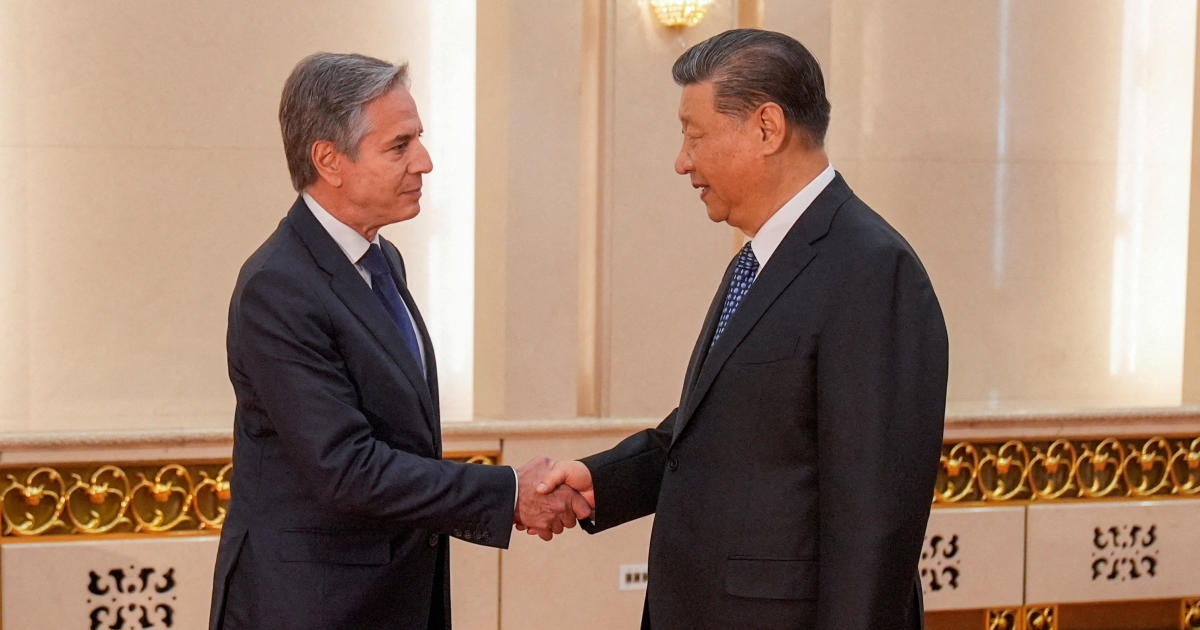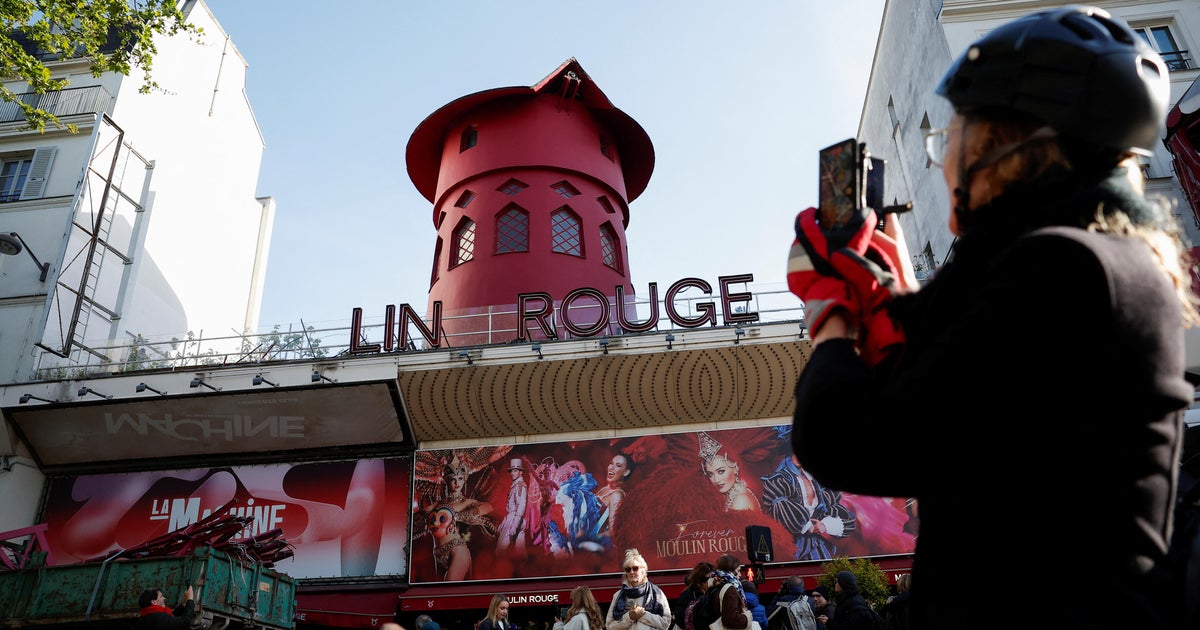Defiant Kim says N. Korea's nukes not up for negotiation
SEOUL, South Korea -- North Korea's leader Kim Jong Un vowed his nation would "demonstrate its mettle to the U.S." and never put its weapons programs up for negotiations a day after test-launching its first intercontinental ballistic missile. The hard line suggests more tests are being prepared as the country tries to perfect a nuclear missile capable of striking anywhere in the United States.
Tuesday's ICBM launch, confirmed later by U.S. and South Korean officials, is a milestone in Pyongyang's efforts to develop long-range nuclear-armed missiles. The North isn't there yet -- some analysts suggest it will take several more years to perfect such an arsenal, and many more tests -- but a successful launch of an ICBM has long been seen as a red line, after which it would only be a matter of time -- if the country isn't stopped.
Worry spread in Washington and at the United Nations, where the United States, Japan and South Korea requested a U.N. Security Council emergency session, to be held later Wednesday. U.S. Secretary of State Rex Tillerson said the U.S. response would include "stronger measures to hold the DPRK accountable," using an acronym for the nation's formal name, the Democratic People's Republic of Korea.
The uproar only seemed to inspire the North, whose propaganda machine rarely fails to aggrandize its leader and its military or to thumb its nose at rivals Seoul and Washington.
A report in its state media Wednesday described leader Kim as "feasting his eyes" on the ICBM, which was said to be capable of carrying a large nuclear warhead, before its launch. "With a broad smile on his face," Kim urged his scientists to "frequently send big and small 'gift packages' to the Yankees," an apparent reference to continuing the stream of nuclear and missile tests Kim has ordered since taking power in late 2011.
The North was also pleased that its test came as Americans celebrated Independence Day. Kim, the state media report said, told "scientists and technicians that the U.S. would be displeased to witness the DPRK's strategic option as it was given a 'package of gifts' incurring its disfavor by the DPRK on its 'Independence Day.'"
Michael Morell, a former deputy CIA Director and now a senior CBS News security analyst, noted on Tuesday that North Korean leaders have a history of provocative acts on or around July 4 -- including the nation's first nuclear test in 2006.
"(Kim Jong Un) seems to think that it has a particular psychological impact on us, doing something on July Fourth. It obviously does not. It probably gets less news than he would like on July Fourth. We used to joke at CIA that the only thing doing this on July Fourth does, is ruin the holidays of a lot of intelligence analysts."
The message Kim is trying to send, Morell said, is: "'I can deter the United States of America from attacking me. I can deter them from trying to change the regime.' That's the message he's trying to send."
Kim reportedly "stressed that the protracted showdown with the U.S. imperialists has reached its final phase and it is the time for the DPRK to demonstrate its mettle to the U.S., which is testing its will in defiance of its warning."
The test, North Korea's most successful yet, is a direct rebuke to President Donald Trump, who declared in January that North Korea's intention of building a nuclear-armed weapon capable of reaching the U.S., "won't happen!"
A U.S. scientist analyzing the height and distance of the launch said the missile could potentially reach Alaska.
North Korea's Academy of Defense Science, in a bit of hyperbole, said the test of what it called the Hwasong-14 marked the "final step" in creating a "confident and powerful nuclear state that can strike anywhere on Earth."
South Korea's Defense Ministry, in a report to lawmakers, tentatively concluded that North Korea test-fired a "new missile with an ICBM-class range" of more than 3,418 miles. But the ministry said it's not certain if the test was successful because Seoul couldn't verify if the North has mastered re-entry technology for an ICBM. The ministry said North Korea may now conduct a nuclear test with "boosted explosive power" to show off a warhead to be mounted on a missile.
The launch sends a political warning to Washington and its chief Asian allies, Seoul and Tokyo, while also allowing North Korean scientists a chance to perfect their still-incomplete nuclear missile program. It came days after the first face-to-face meeting between Trump and Moon and ahead of a summit of the world's richest economies.
In a large-scale military exercise Wednesday, the U.S. and South Korea launched a barrage of "deep strike" precision missiles into South Korean territorial waters.
The U.S. message to North Korea, says Tracy, was clear: we have weapons, too, and they are not far away. In a statement, the Pentagon said the U.S. would, "use the full range of capabilities at our disposal against the growing threat from North Korea."
Russian President Vladimir Putin and his Chinese counterpart Xi Jinping met in Moscow on Tuesday and stressed diplomacy, jointly proposing that the North freeze its nuclear and missile programs in exchange for the U.S. halting all joint military drills with South Korea. On Wednesday, Russian Foreign Minister Sergey Lavrov said his country and China both "oppose" any move to resolve the standoff by military force, or with measures that would "strangle" North Korea economically.
North Korea claimed that Tuesday's test improved the accuracy of its long-range missile arsenal, and said the one tested could carry a large-sized nuclear warhead. However, as Tracy reports, one test does not mean the North now has a reliable intercontinental ballistic missile system, and it remains unclear whether they can really put a nuclear warhead on it, as claimed.
Hamish de Bretton-Gordon, a former commanding officer of the British Armed Forces Joint Chemical Biological Radiological Nuclear Regiment, said that "in capability of missile terms and delivery, it is a major step up and they (North Korea) seem to be making progress week-on-week." He added, however, that "actually marrying the warhead to the missile is probably the biggest challenge, which they appear not to have progressed on."
North Korea has a reliable arsenal of shorter-range missiles and is thought to have a small number of atomic bombs, but is still trying to perfect its longer-range missiles. Some outside civilian experts believe the North has the technology to mount warheads on shorter-range Rodong and Scud missiles that can strike South Korea and Japan, two key U.S. allies where about 80,000 American troops are stationed. But it's unclear if it has mastered the technology needed to build an atomic bomb that can fit on a long-range missile.
Soon after the launch, Trump responded on Twitter: "North Korea has just launched another missile. Does this guy have anything better to do with his life? Hard to believe that South Korea and Japan will put up with this much longer. Perhaps China will put a heavy move on North Korea and end this nonsense once and for all!"
"This guy" presumably refers to Kim. China is North Korea's economic lifeline and only major ally, and the Trump administration is pushing Beijing to do more to push the North toward disarmament.
After North Korea claimed earlier this year it was close to an ICBM test launch, Trump took to Twitter and said, "It won't happen!"
North Korea says it needs nuclear weapons and powerful missiles to cope with what it calls rising U.S. military threats.
Regional disarmament talks on North Korea's nuclear program have been deadlocked since 2009, when the North pulled out of the negotiations to protest international condemnation over a long-range rocket launch.
The missile test could invite a new round of international sanctions, but North Korea is already one of the most sanctioned countries on Earth.
Last year, North Korea conducted its fourth and fifth atomic bomb tests and claimed a series of technical breakthroughs in its efforts to develop long-range nuclear missiles. The fifth nuclear test in September was the North's most powerful atomic detonation to date.
The Korean Peninsula has been divided since the end of World War II. Almost 30,000 U.S. troops are stationed in South Korea.



